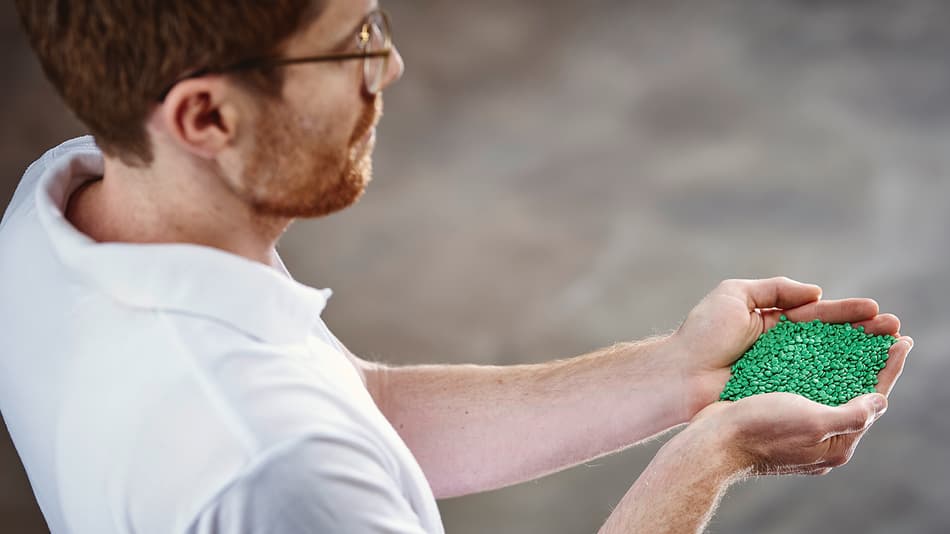
TOMRA and Borealis open state-of-the-art plant for post-consumer plastic waste sorting and advanced mechanical recycling
The existence of this plant is testament to what can happen when leaders take a conscious and intentional approach to a sustainability issue. When they come together and contribute to a solution to one of the world’s biggest challenges. In this case, the challenge of keeping high-quality plastics in a closed loop.
Operation of the plant is a joint enterprise between TOMRA, Borealis and Zimmerman. Borealis is responsible for the plant’s commercial success and contributes its expertise and knowledge in innovation, recycling and compounding. Likewise, TOMRA contributes as a provider of technology-led solutions and brings its proven expertise, established process and market knowledge which, in turn, enable the circular economy through advanced collection and sorting systems. Zimmerman is a waste management company with experience in sorting multiple types of waste, including plastics, and is responsible for successful plant operations and product quality.
The state-of-the-art plant processes both rigid and flexible plastic waste from households. And unlike many current recycling plants, it will produce the advanced solutions necessary for use in high-demanding plastic applications in various industries, including automotive and consumer products. With high purity, low odour, high product consistency and light colour fractions, these Borcycle™ M grade recycled polymers will meet customer quality requirements across the value chain.
The purpose of this demo plant is to generate material for brand owners and converters to qualify, validate and prove fit for use in their highly demanding applications. Technical success will set the groundwork for a commercial-scale advanced recycling plant.
.jpg)
“At P&G we are making packaging with the ‘next life’ in mind to help drive a more robust circular economy. We must increase the supply of high-quality recycled plastic to enable the industry to deliver on this vision,” says Gian De Belder, Procter & Gamble (P&G) Technical Director, R&D Packaging Sustainability. “The innovative new approach that TOMRA and Borealis are taking shows potential to step-change both the quantity and quality of PCR available for our brands and help us to achieve our 2030 goal to reduce our use of virgin plastic in packaging by 50%, or 300 kilotonnes annually. Early tests of the material look very promising!”
“At Henkel, we want to reduce fossil-based virgin plastic to 50 percent by 2025 – for example, by increasing the share of recycled plastics to more than 30 percent globally. One major challenge towards more circular packaging is the availability of high-quality recycled plastics that can be used in the packaging of our brands,” comments Thorsten Leopold, Director International Packaging Technology Home Care at Henkel. “We are, therefore, very excited that this project brings together three proven experts along the value chain with the ambition to lift mechanical recycling to a new level.”
